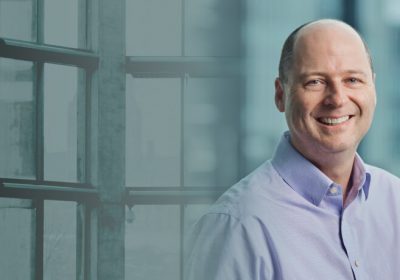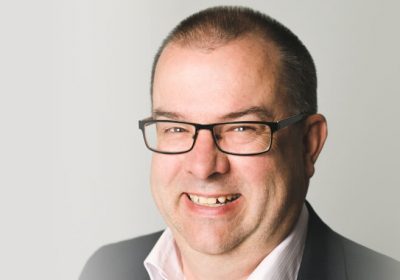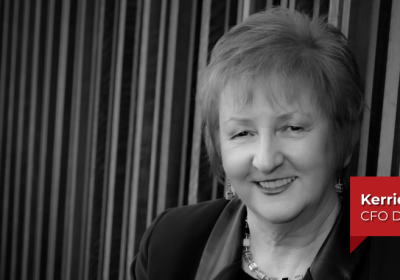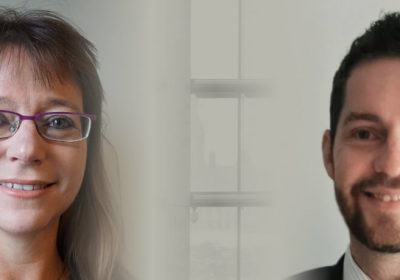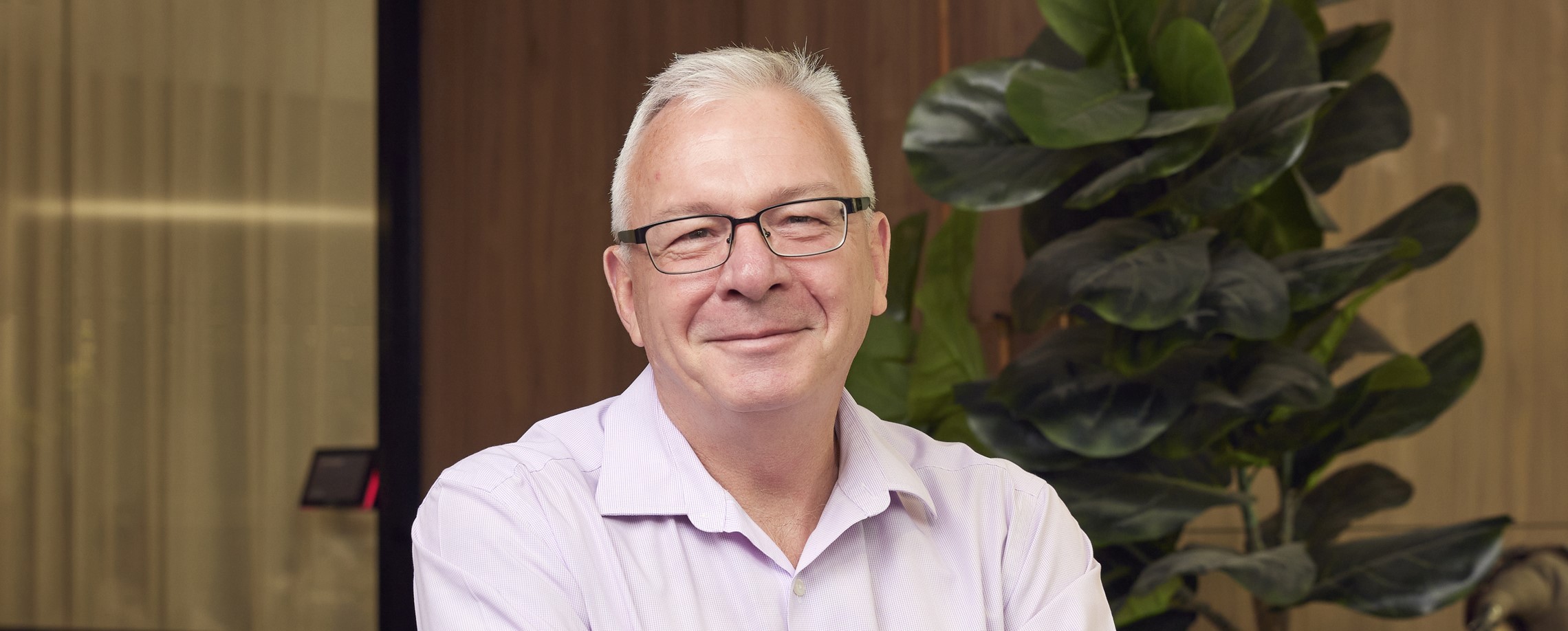
- Author: Nina Hendy
- Posted: June 17, 2024
Top Tips > Building & Retaining a Winning Finance Team!
Award-winning CFO Andrew Mooney attributes his success to having an insatiable curiosity, moving with the times, losing the ego and failing fast. By Nina Hendy.
In his own words, CFO Andrew Mooney (CPA) describes himself as being balanced in his judgements and being able to identify an organisation’s true potential.
In his LinkedIn profile, he also describes himself as a trouble shooter and agent of change:
“I freaking love being an accountant. You get into the guts of a business and find out what works, and what doesn’t. And you get to meet all the parts of the organisation to fix the broken and enhance the brilliant. How cool is that?”
With an attitude like that, it’s hardly surprising that Mooney was last year lauded for building the Finance Team of the Year (SME category) in the 2023 Australian CFO Awards, which recognises unsung heroes in the finance world, along with rising stars that set the industry standard for excellence.
The CFO for turn-key office design and fit-out providers Sheldon has made an indelible mark on the organisation since starting in the role in October, 2022. The small business has delivered thousands of workplaces that empower people and inspire culture since it was launched over 30 years ago, operates across industries including commercial, government, technology, finance, health and industrial.
As part of the leadership team, Sheldon is on track to have its best year ever – a huge achievement for a small business working in an industry going through transformative change after the pandemic forced companies to rethink the physical office space they ask people to work in.
Interestingly, there are a lot of family members working at Sheldon, including most recently, Mooney’s daughter. He says that it’s proof that when you’re onto a good thing, you tell your nearest and dearest first.
He runs a small finance team for Sheldon, helping all facets of the business improve and at the same time implementing a new ERP system. “And we’re still in the same business, we’re still servicing the same clients, we’ve still got the same people. We just focus on the things that are important.”
Working in finance
Early in his career, Mooney took on roles in the Solomon Islands and Vietnam in the 1990s, where he worked as a finance and administration manager and financial controller before returning to Sydney.
He’s also worked for ASX-listed companies, spent time in packaging, a 14-year stint in mining and most recently, he spent a year bringing an accounting and tax firm back from the brink during a period of extreme turmoil by overhauling the organisation with a back to basics approach.
No matter where he goes, Mooney admits he’s got a level of insane curiosity. He says the role of the CFO is to see the workplace as a jigsaw puzzle and find ways to help slot it together.
“At the end of the day, the function of the finance team is to create accurate information quickly so that decision makers can make better decisions. Our job is to find out what each competitive advantage is and make the company better.”
Above all else, he knows his place. The ever-curious CFO says while finance is by no means the centre of the universe, it’s a function that engages with every segment of the business. “It’s incumbent upon us to learn how every segment of that business works.”
Making it simple
All too often, accountants over-complicate the world rather than looking for ways to simplify it.
Rather than rolling up his sleeves without asking any questions, he prefers to first think about the bigger picture first. “It’s only from asking the question of whether there’s a better way forward that you can do better, and you can bring the whole organisation on the journey with you.
“We always start with the why, and then ask if there’s a better, faster or cheaper way to do things. If you start out with those two questions, the rest falls into place.”
For example, once he started understanding the work completed by an accountant in his team, he quickly realised there were steps being completed not adding value to the broader business. “She had simply inherited the tasks from the person before her, and they weren’t crucial in any way, so I told her to stop doing that part of her role.”
While initially controversial, he also stopped the need for timesheets for tradespeople. “No one likes creating timesheets, and we already had other systems in place telling us where our people were located. If I know they are on site, why do they need to fill in timesheets?”
“Just because someone fills out a timesheet, it doesn’t mean they’re working. You’ve got to trust that people are working,” he says.
These small incremental changes create a domino effect over time. “We’re in a place now where our entire team is fully engaged and understands what the mission is,” he says.
Mooney admits he’s had doubters approach him about the changes he has made, but he just points to the results, which are pretty impressive given the broader economic woe. “We’re on track to have our best year ever, and we aren’t doing anything radically different. That simply comes from getting people to focus on the important things.”
Ego is the biggest thing that holds people back. “Accountants think if they are the only repository of knowledge in an organisation, then they are invincible, and it doesn’t work like that. I see my job in the workforce is to make myself redundant, and I do that by making my team capable of doing my job, and then I can move onto the next task,” he says.
Culture
The other important element of course, is culture. “You can make the office look great, but if the culture isn’t right, people won’t bother coming in. Employees want to feel engaged, challenged and encouraged to build relationships with other people in the business. Getting the culture right is the difference between mediocre and sensational.”
Mooney also believes that organisations should do away with a hierarchy in favour of a more collaborative and engaging dynamic, which has helped him get the most out of people.
The team has also embraced LinkedIn Learning, offering thousands of courses over almost every discipline to its team so they can build new skills. “Rather than send people on a three day course where people’s eyes glaze over after a day, this approach allows staff to bookmark their learnings and come back to it when they’re ready. This is a small, inexpensive tool that we can implement to help build our culture.”
Office design
Of course, office design is also critical. The office space has to aesthetically look nice and also be functional. “Just like home, when you’re at work, you want to be in a place where you’re comfortable, and you like going to. And it doesn’t cost much more to do things better,” Mooney says.
“Workplaces are recognising now that our employees aren’t robots. They can’t work at 100 per cent until 5pm and then go home. Sometimes they need to go somewhere and rest their eyes for 15 minutes,” Mooney says.
As an office design team, Sheldon is also happy to push the envelope within its own teams, ripping out its meeting room and replacing it with a jungle room at the Somersby factory. The main office has also been designed so that people can write or draw on the walls. “Is it going to work? I don’t know, but everyone is engaged, and so far, they can see the benefits of it and we won’t know until we’ve tried it.”
While Sheldon allows people to work from home, he admits that you don’t get the same collaboration opportunities. “The communications just don’t happen like they do when you’re in an office. You don’t get that spontaneity.”
The Sheldon office closes at 3.30pm on Fridays and while not mandatory, people can have a drink with their colleagues, or head home. Most of the time, the entire team choose to stay, which says a lot about the culture they’ve built, he says.
Andrew’s SIX Top Tips for a Winning Finance Team:
Keep learning! > The day that you stop learning is the day that your brain starts dying.
Bring people together > Not just in the office – but encourage teams in other departments to work together on projects.
Ditch the hierarchy > Actively build collaboration and engagement to get the most out of people.
Fail fast > If something you implement doesn’t work, it hasn’t cost a lot and you can move on.
Lose the ego > The biggest thing holding people back is the belief that they need to be the repository of all knowledge.
Embrace change > Most people are resistant to change because they fear it – but change brings new opportunities!



